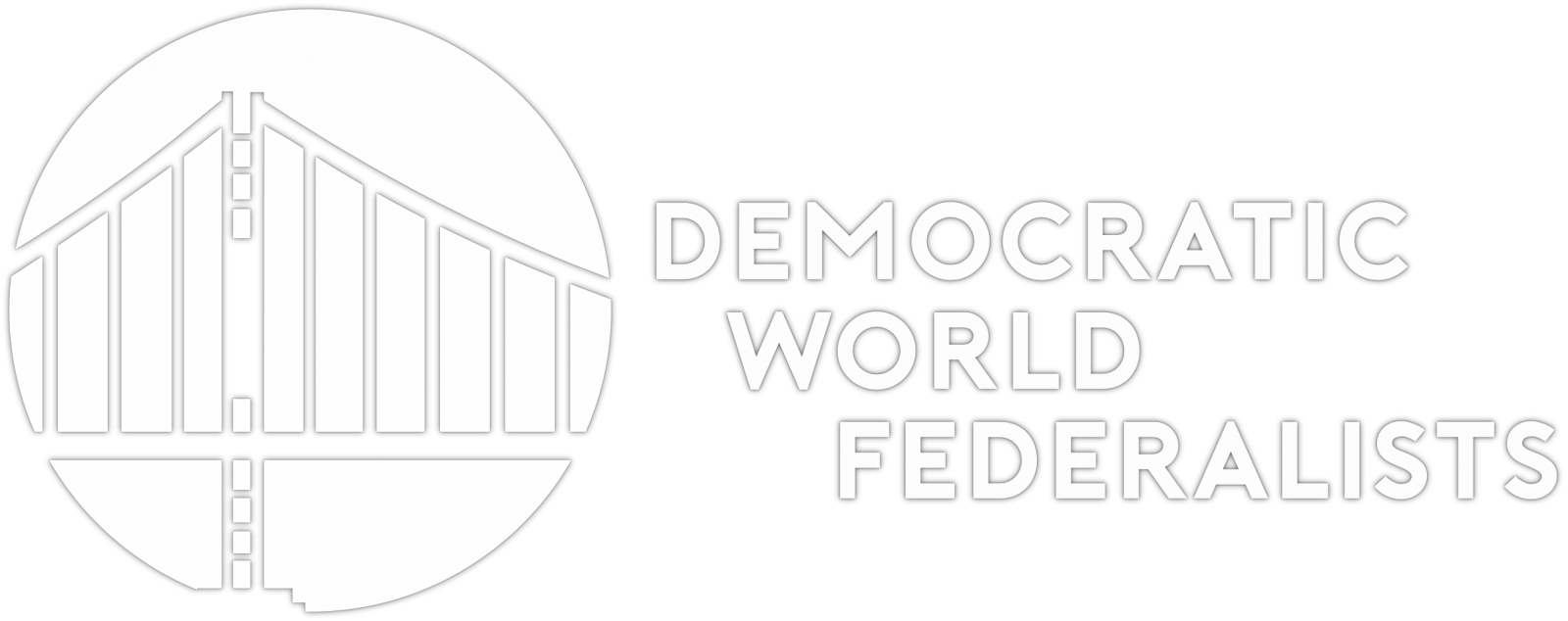Bob Hanson
Chief Financial Officer and Treasurer | Democratic World FederalistsI was only 14 years old when world leaders gathered in San Francisco to form the United Nations. Most, if not all of these men (women were not involved in world affairs in those days), are probably dead by now. I would have liked to have been there to take part in the deliberation process. I believe the founders were seriously interested in creating a world beyond
A couple of years ago, I heard Shahr-Yar
THE SAN FRANCISCO PROMISE
Click to Learn More
Donate
Naturally, many of the other nations objected to this undemocratic demand. After much deliberation and the threat that the U.S. would withdraw from the organization before it began, the American team came up with a compromise proposal….give the winners of World War II the veto initially and after 10 years they would re-examine the issue at a charter review. This was written into the charter as Article 109-3. This article expressly called for a charter review conference 10 years after the U.N. was created. We will never know if the men who offered the “San Francisco Promise” intended to live up to the promise or not. We do know that subsequent leaders of the U.S., United Kingdom, France, the Soviet Union, Russia and China have reneged on the promise and prevented the charter review from happening.
The veto is not the only situation that needs to be considered if the U.N. is to live up to promise of ending war. The voluntary nature of the court system is a major weakness. A world parliament is badly needed to create world law. A volunteer rapid deployment peacekeeping force has been requested by every Secretary General, but never created. I’m sure the founders never expected the charter to go 73 years without changes.
I think that if these major shortcomings of the U.N. are ever to be over-come, and the United Nations is to live up to its potential, it will be through the non-veto wielding , peace-loving nations of the world getting together and demanding change. It is likely that if this happens, the U.S. will threaten to drop its membership. Hopefully, the instigators of change will call our bluff and conduct the review with or without our participation. The U.S. likes to think of itself as the “indispensable “ nation. No nation is indispensable. I think a more democratic, stronger organization without the United States would be preferable to the present, toothless organization we now enjoy. It wouldn’t take long before the U.S. would re-apply.
If the world community doesn’t figure out a way to end war, wars will eventually end human life on earth. The human experiment will be over. Let’s do our part to prevent that scenario by working together to strengthen and democratize the United Nation by insisting on the fulfillment of the SAN FRANCISCO PROMISE.
What is World Federalism?
World Federal Government (WFG)
Original Publisher
DWF NewsBob Hanson – Chief Financial Officer and Treasurer of the Democratic World Federalists. He is Emeritus Professor of Recreation at San Diego State University, where he was on the faculty for 23 years. He is and has been a leading member of many activist groups including the United Nations Association, Citizens for Global Solutions, Amnesty International, Peace Action West, Common Cause, United for Peace and Justice, and others. He is also a member of the Green Party. A World Federalist for over 40 years, he is also a contributor to DWF News.


